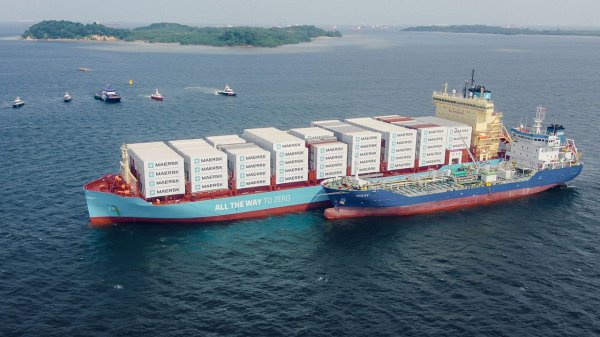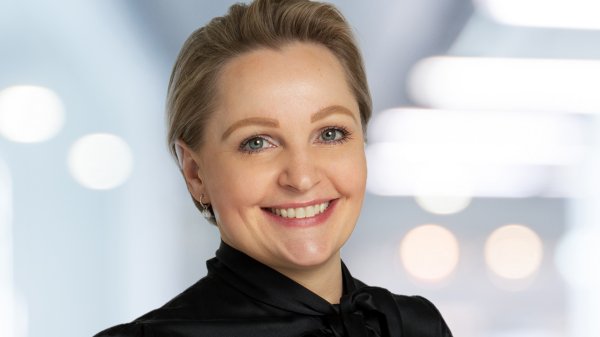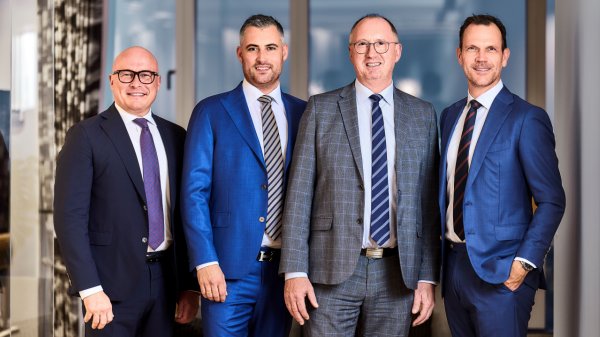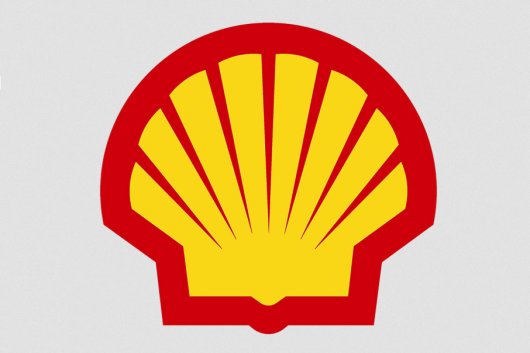Shell Marine 40 engine oil launched for tug and fishing markets
Designed to help ensure clean combustion for more fuel-efficient burning and improved reliability.
Shell Marine is launching Shell Marine 40 - an engine oil for use in high-speed diesel engines in the fishing and tug boat segments, to support and help enhance the performance of engines.
Shell Marine 40 has been formulated to react to the combustion processes that take place in high-speed engines, and is designed to give added protection and extended machinery life to vessels whose unavailability can have disproportionate cost consequences further along the supply chain.
Marcus Schaerer, Shell Marine Global Marketing Manager, points out that fuel is one of the largest vessel operating costs, so ensuring clean combustion protects both a vessel's engine and its operator's bottom line.
Shell Marine 40's additive system controls piston deposits and helps to maintain good standards of engine cleanliness to ensure more efficient burning and higher reliability, he says.
"Poorer-quality oils can thicken or break down. Either way, the engine can become dirty and less efficient than its designers intended. The change is typically very gradual - almost imperceptible, in fact - so it is hard to detect on a day-to-day basis, but over time the degradation accumulates."
Whether used to sustain a tug manoeuvring large cargo ships to facilitate the just-in-time port operations, or a fishing vessel chasing shoals to leverage fluctuations in market prices and consumer tastes, selecting the wrong lubricant can result in premature engine corrosion and wear, Shell Marine points out.
The lube supplier also notes that unplanned maintenance or, in more serious cases, outright downtime spent on repair can jeopardise the chances of contracts being renewed, so Shell Marine 40 is designed to help lower maintenance outlay and improve vessel availability.
Schaerer remarked: "Recent successes in commercial shipping have been built around the development of innovative solutions, and our expectations in the fishing and tug markets are based on the same marriage between product R&D and deep understanding of the requirements of a specific market.
"The high-speed engines that power tugs and fishing boats face a vastly different operational profile to a containership or a dredger. We deliver lubricants that recognise and match the differing needs to help ensure that vessel engine can perform their jobs reliably and efficiently."
Shell Marine 40 has been formulated to react to the combustion processes that take place in high-speed engines, and is designed to give added protection and extended machinery life to vessels whose unavailability can have disproportionate cost consequences further along the supply chain.
Marcus Schaerer, Shell Marine Global Marketing Manager, points out that fuel is one of the largest vessel operating costs, so ensuring clean combustion protects both a vessel's engine and its operator's bottom line.
Shell Marine 40's additive system controls piston deposits and helps to maintain good standards of engine cleanliness to ensure more efficient burning and higher reliability, he says.
"Poorer-quality oils can thicken or break down. Either way, the engine can become dirty and less efficient than its designers intended. The change is typically very gradual - almost imperceptible, in fact - so it is hard to detect on a day-to-day basis, but over time the degradation accumulates."
Whether used to sustain a tug manoeuvring large cargo ships to facilitate the just-in-time port operations, or a fishing vessel chasing shoals to leverage fluctuations in market prices and consumer tastes, selecting the wrong lubricant can result in premature engine corrosion and wear, Shell Marine points out.
The lube supplier also notes that unplanned maintenance or, in more serious cases, outright downtime spent on repair can jeopardise the chances of contracts being renewed, so Shell Marine 40 is designed to help lower maintenance outlay and improve vessel availability.
Schaerer remarked: "Recent successes in commercial shipping have been built around the development of innovative solutions, and our expectations in the fishing and tug markets are based on the same marriage between product R&D and deep understanding of the requirements of a specific market.
"The high-speed engines that power tugs and fishing boats face a vastly different operational profile to a containership or a dredger. We deliver lubricants that recognise and match the differing needs to help ensure that vessel engine can perform their jobs reliably and efficiently."

|
How to engineer and manage green shipping fuels | Stanley George, VPS
Effective management strategies and insights for evolving fuel use. |
|
|
|
||

|
Swedish government bans scrubber wastewater discharges
Discharges from open-loop scrubbers to be prohibited in Swedish waters from July 2025. |
|
|
|
||

|
MAN Energy Solutions achieves 100% load milestone for ammonia engine
Latest tests validate fuel injection system throughout the entire load curve. |
|
|
|
||

|
Petrobras secures ISCC EU RED certification for B24 biofuel blend at Rio Grande
Blend consisting of 24% FAME is said to have been rigorously tested to meet international standards. |
|
|
|
||

|
Stolt-Nielsen to fully control Avenir LNG with acquisition
Share purchase agreement to buy all shares from Golar LNG and Aequitas. |
|
|
|
||

|
Bureau Veritas supports launch of CIMC SOE's LNG bunkering vessel
Handover of Seaspan Energy's cutting-edge 7,600-cbm vessel completed. |
|
|
|
||

|
Methanol as a marine fuel | Steve Bee, VPS
How environmental legislation has driven the development of low-sulphur fuels and methanol-ready ships. |
|
|
|
||

|
Martin Vorgod elevated to CEO of Global Risk Management
Vorgod, currently CCO at GRM, will officially step in as CEO on December 1, succeeding Peder Møller. |
|
|
|
||

|
Dorthe Bendtsen named interim CEO of KPI OceanConnect
Officer with background in operations and governance to steer firm through transition as it searches for permanent leadership. |
|
|
|
||

|
Bunker Holding revamps commercial department and management team
CCO departs; commercial activities divided into sales and operations. |
|
|
|
||
Related Links
- · Shell Marine expands lubricants network in New Zealand, Indonesia, Spain and Chile [Insights]
- · Shell warns of potential LNG shortage in mid-2020s [Insights]
- · Shell secures lubricant deal with Cosco Shipping for seven ULCCs [Insights]
- · Shell launches Alexia 140 to combat cold corrosion [Insights]
- · Shell opens Asia-Pacific's second-biggest lubricant plant [Insights]
- · Singapore [Directory]

